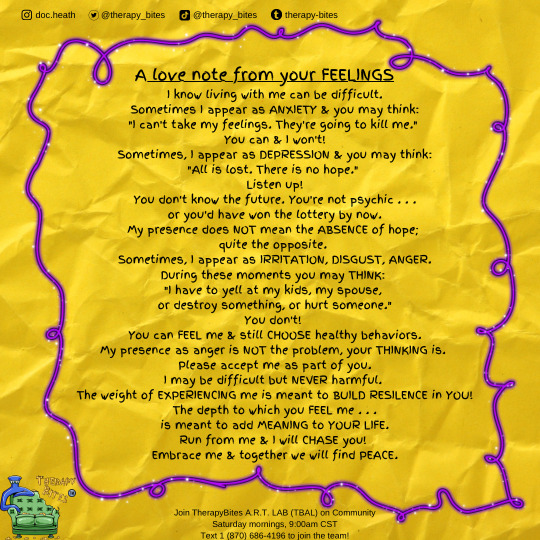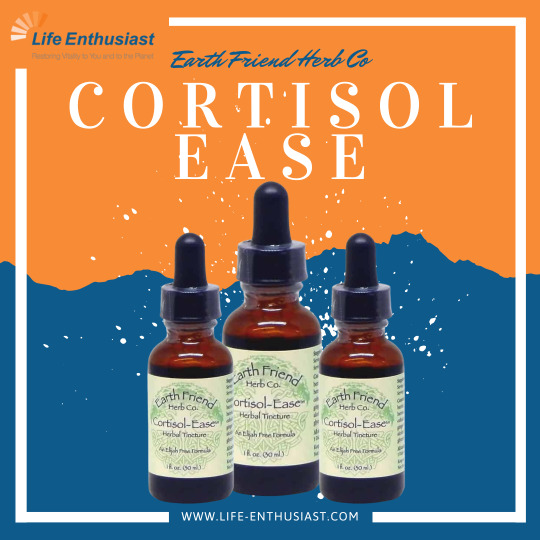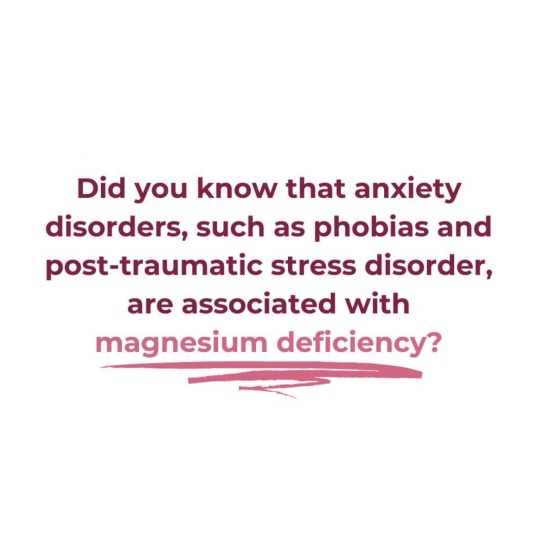#ptsdsupport
Text

No explanation needed. Do you relate?
#mentalillness#mental health#ptsd recovery#selfcare#adultchildren#alanon#emdr#ptsdsurvivor#recoverywarrior#thereishope#itsoknottobeok#ptsdsupport#complexptsd#childabuse
20 notes
·
View notes
Text

Caring for Those Who Have Experienced Trauma: Tips for Family and Friends
Understanding Trauma: What It Is and How It Affects People
Trauma happens when something bad happens and it's too much for someone to handle. It can have a profound impact on a person's thoughts, feelings, and behaviours. Trauma comes in different types, like acute trauma from one event, or complex trauma from repeated exposure. People who have experienced trauma often have intrusive thoughts, nightmares, and difficulty concentrating. They may also avoid reminders of the trauma and become hypervigilant. Additionally, their mood and behaviour can change, and they may feel irritable. These symptoms can significantly affect a person's daily functioning and quality of life.
The Importance of Listening: How to Be a Supportive Listener for Trauma Survivors
One of the most important ways to support trauma survivors is by being a good listener. Active listening techniques can help create a safe and supportive environment for survivors to share their experiences. This includes giving your full attention, maintaining eye contact, nodding or using other non-verbal cues to show understanding, and asking open-ended questions to encourage further discussion. It is crucial to avoid judgment and criticism when listening to trauma survivors. They may have experienced events that are difficult for others to understand or relate to. Instead of offering advice or opinions, it is important to provide validation and empathy. Letting survivors know that their feelings and experiences are valid can help them feel heard and understood.
Creating a Safe Space: Tips for Making Trauma Survivors Feel Comfortable and Secure
Creating a safe space is essential when supporting trauma survivors. This includes both physical and emotional safety. Physically, it is important to ensure that the environment is free from potential triggers or reminders of the traumatic event. This may involve removing certain objects or adjusting the lighting and temperature to create a calming atmosphere. Emotionally, it is crucial to create a non-judgmental environment where survivors feel comfortable expressing their thoughts and feelings. Respecting boundaries and privacy is also important in creating a safe space. People who have experienced trauma may have their own preferences for personal space and privacy. It is crucial to honour these boundaries.
Dealing with Triggers: How to Help Trauma Survivors Manage Their Triggers
Triggers are stimuli that remind trauma survivors of their traumatic experiences and can elicit intense emotional or physical reactions. Common triggers include certain sounds, smells, sights, or situations that are reminiscent of the traumatic event. It is important to help trauma survivors identify their triggers and develop coping strategies to manage them. Coping strategies for managing triggers can include deep breathing exercises, grounding techniques, engaging in activities that promote relaxation or distraction, and seeking support from trusted individuals. It is important to encourage survivors to communicate their triggers and needs so that appropriate measures can be taken to help them feel safe and supported.
Coping Strategies: Techniques for Helping Trauma Survivors Cope with Their Emotions
Coping strategies are essential for trauma survivors to manage their emotions and navigate the healing process. Self-care techniques, such as engaging in activities that promote relaxation, practising mindfulness or meditation, getting regular exercise, and maintaining a healthy diet can help survivors regulate their emotions and reduce stress. Mindfulness and relaxation techniques, such as deep breathing exercises, progressive muscle relaxation, or guided imagery, can help trauma survivors calm their minds and bodies during times of distress. Seeking professional help, such as therapy or counselling, can also be beneficial in providing trauma survivors with the necessary tools and support to cope with their emotions.
The Power of Validation: Why It's Important to Validate Trauma Survivors' Experiences
Validation is the act of acknowledging and accepting someone's thoughts, feelings, and experiences as valid and real. It is a powerful tool in supporting trauma survivors as it helps them feel heard, understood, and validated. Validating trauma survivors' experiences can help them regain a sense of self-worth and reduce feelings of shame or self-blame. Providing validation involves actively listening to survivors' stories without judgement or criticism. It involves acknowledging their pain and suffering and expressing empathy and understanding. Validating trauma survivors' experiences can help them feel less alone and more supported in their healing journey.
Helping Trauma Survivors Seek Professional Help: How to Encourage Them to Get the Support They Need
Professional help is often necessary for trauma survivors to fully heal and recover from their traumatic experiences. However, many survivors may face barriers to seeking help, such as stigma, fear, or lack of access to resources. It is important to encourage and support trauma survivors in seeking professional help. Emphasising the importance of professional help and providing information about available resources can help survivors understand that seeking help is a sign of strength rather than weakness. Offering to accompany them to appointments or helping them research therapists or support groups can also provide practical support in accessing professional help.
Self-Care for Caregivers: Why It's Important to Take Care of Yourself When Supporting Trauma Survivors
Supporting trauma survivors can be emotionally demanding and challenging. Caregivers may experience secondary trauma or compassion fatigue as a result of their work. Caregivers must prioritise self-care to maintain their well-being and continue providing effective support to trauma survivors. Common challenges for caregivers include feeling overwhelmed, experiencing burnout, and neglecting their own needs. Self-care strategies for caregivers can include setting boundaries, practising self-compassion, seeking support from others, engaging in activities that bring joy or relaxation, and taking regular breaks to rest and recharge.
Understanding Boundaries: How to Respect Trauma Survivors' Boundaries and Needs
Boundaries are essential in supporting trauma survivors as they help create a sense of safety and control. Respecting trauma survivors' boundaries involves understanding and acknowledging their needs and preferences regarding personal space, privacy, and emotional intimacy. Establishing and respecting boundaries can be achieved through open communication and active listening. It is important to ask survivors about their boundaries and preferences and to honour their requests. Respecting boundaries can help trauma survivors feel safe and supported in their healing journey.
Celebrating Progress: Why It's Important to Acknowledge and Celebrate Trauma Survivors' Progress and Achievements
Acknowledging and celebrating the progress and achievements of trauma survivors is an important part of the healing process. It helps survivors recognise their strength, resilience, and growth and reinforces positive changes in their lives. Celebrating progress can involve acknowledging small victories, such as completing a therapy session or trying a new coping strategy. It can also involve recognizing larger milestones, such as reaching a specific goal or overcoming a significant challenge. Celebrating progress can help trauma survivors feel proud of their accomplishments and motivated to continue their healing journey.
Conclusion
Supporting trauma survivors is crucial in helping them heal from their traumatic experiences. To support trauma survivors, we need to listen to them, understand their experiences, and create a safe space. We can also assist them in managing triggers, teaching coping skills, and validating their feelings. Encouraging them to seek professional help and practising self-care as caregivers is important, too. Respecting their boundaries and celebrating their progress can make a positive impact on their lives. Supporting trauma survivors is an ongoing process. Each person's healing journey is unique and important. You can find therapy, support groups, and helplines to get more support and information.
#abuse survivor#ptsdawareness#life coaching#traumarecovery#trauma coach#mental health support#communication#families#friendship#help#be kind#be there#ptsdsupport#ptsdrecovery#ptsdcommunity#trauma recovery#trauma therapy
2 notes
·
View notes
Text
Hii, just wanted to remind you to let go and trust.
What’s meant to be will be. If it’s not meant to be, the universe is preparing you for a better outcome than what you hoped for 🤍
This post found you, it’s your message love
#spiritual#spirituality#universe#healing#journey#river#depression#depressing shit#ptsdsupport#ptsd#suicidal#sewer slide#sewercide#mental health awareness#mental health#mental illness
2 notes
·
View notes
Text
6/11/22
Disability should really pay more. It’s outrageous that I’m expected to live on the lowest amount a month in America, while the cost of living is dangerously increasing. I am disabled and was deemed unfit to work. However, getting a job HAS to happen if I want to survive. Make this make sense????
#disabled#disabled rights#disability#dissociative system#america#mental wellbeing#mentalhealth#mental illness#mental heath support#ptsdsupport#living with bpd#living with ptsd#living with anxiety#anxi4ty#depressing shit#depression#adhd#bipolar1#bipolar diaries#actually borderline#being borderline#borderline feels
11 notes
·
View notes
Text
youtube
#childhoodtrauma#childhood#childhoodmemories#ptsd#ptsdsupport#ptsdawareness#traumahealing#traumarecovery#ChildAbuseAwarenessMonth#Youtube
2 notes
·
View notes
Text

Global Wars & Mental Health- Coming Soon
Global wars- It’s impact on Mental health
Subscribe to our YouTube channel:
https://www.youtube.com/@DoctorsCouch-sd6ck
#GlobalWars#mentalhealth#mentalhealthmatters#ptsd#ptsdawareness#PTSDTreatment#PTSDRecovery#ptsdhealing#PTSDSupport
0 notes
Text
Try Cortisol-Ease here: https://www.life-enthusiast.com/shop/earth-friend-cortisol-ease/
#lifeenthusiast#OvercomingOverwhelm#StressReliefSolutions#LifeChallenges#CortisolEase#WellnessJourney#FindYourCalm#NavigatingOverwhelm#HolidayStress#MindBodyBalance#SelfCareMatters#PTSDSupport#NaturalHealing#LifeEnthusiastProducts#HealthAndWellbeing#PositiveChanges#CopingStrategies#InnerPeace#HolidayWellness#StressFreeLiving#LindasExperience#TestimonialTuesday#LifeTransformations#HealthyLiving#AdrenalWellness#CalmAmidstChaos#SeniorWellness#ProductReview#WellnessArsenal#HolidaySurvivalGuide
0 notes
Link
0 notes
Photo

“Find Your Smile” It’s been a while since I posted on Instagram. The struggle with my health continues to challenge me daily and more bad moments than good over last few months. This photo reminds me to find the happy moments in the little things of life and be grateful for my blessings. So many others in my circle are suffering more than I and trying to discover their new “normal” can be difficult as our bodies betray our minds. Reach out to your tribe - often - and let them know you care. The value of a supportive team can’t be overstated during times of dire need albeit physical or mental. Many times, a warm hug is needed to melt the jaded heart and let the sunshine come into the darkness. Fujfilm X-Pro3 Mamiya-Sekor SX 28mm f2.8 Kipon Focal Reducer #mentalheath #ptsdsupport #cancersucks #hugafriend #supportothers #10yearsofxmount #myfujifilmlegacy #sunshinelife #smile #instadaily (at Oklahoma City, Oklahoma) https://www.instagram.com/p/CqE6NKHOqo3/?igshid=NGJjMDIxMWI=
#mentalheath#ptsdsupport#cancersucks#hugafriend#supportothers#10yearsofxmount#myfujifilmlegacy#sunshinelife#smile#instadaily
0 notes
Photo

I Put My Heart On My Sleeve And Had To Humble Myself When Writing This #1 Best Selling Book. Are you tired of feeling stuck in a cycle of depression, anxiety, PTSD, or addiction? Do you want to break free and live the life you deserve? Then you need to pick up "A Hero's Journey" by the Comeback Coach, Richard Kaufman. This powerful book offers practical tools and guidance to help you overcome your struggles and rediscover your inner hero. And the best part? 100% of the profits from the book go towards ending Veteran suicide and homelessness. So not only will you be helping yourself, but you'll also be making a difference in the lives of those who have sacrificed so much for our country. Don't wait any longer to take the first step towards your comeback. Order "A Hero's Journey" today and join the movement to end Veteran suicide and homelessness. To Get Your Copy Click Here-https://www.amazon.com/Heros-Journey-Darkness-light-ebook/dp/B07MBV7CC3 #recoveryispossible #addictionrecovery #ptsdrecovery #ptsdawareness #ptsdsupport (at North Arlington, New Jersey) https://www.instagram.com/p/Cp22lSvBqii/?igshid=NGJjMDIxMWI=
0 notes
Text

Overcoming the Unseen Battle: A Guide to Coping with PTSD Symptoms
Introduction
A. Explanation of PTSD
PTSD is a mental health problem that can happen after a traumatic event. PTSD is a complicated disorder that affects people differently. It can cause intrusive thoughts, nightmares, flashbacks, and intense anxiety. PTSD can significantly affect a person's daily life, relationships, and overall well-being.
B. The importance of understanding PTSD
Understanding PTSD is crucial for several reasons. First, it lets people with symptoms know they are not alone and their experiences matter. It also helps remove the shame of mental health and encourages seeking help and support. If you understand PTSD, you can help and support those affected by it.
Understanding PTSD: Symptoms and Causes
A. Definition of PTSD
PTSD is a mental disorder. It happens after a traumatic event like war, disasters, or assault. Four main groups can divide the symptoms of PTSD. People with this condition may have unwanted thoughts. They may avoid certain things. They may feel down. They may startle easily.
B. Symptoms of PTSD
People with PTSD may experience symptoms such as intrusive thoughts, bad dreams, worry, and anger. They may also have trouble sleeping, focusing, and be hyperaware. Additionally, they may try to avoid reminders of the traumatic event.
C. Causes of PTSD
A wide range of traumatic events can cause PTSD. Events that can cause trauma include combat, assault, accidents, disasters, violence, and illness. The severity and duration of an event, as well as a person's support system, can cause PTSD.
The Impact of Trauma on Mental Health
A. Effects of trauma on mental health
Experiencing trauma can have a profound impact on an individual's mental health. It can lead to mental health issues such as depression, anxiety, substance abuse, and dissociation. Trauma can also affect an individual's self-esteem, ability to trust others, and overall sense of safety and well-being.
B. Common mental health disorders associated with trauma
Besides PTSD, trauma can contribute to the development of other mental health disorders. PTSD often comes with depression. People feel sad, hopeless, and lose interest in things they liked. Traumatic experiences can lead to anxiety disorders like generalised anxiety or panic disorder. Many people with trauma turn to drugs or alcohol to cope, which is a common issue.
Seeking Professional Help: Therapy and Medication
A. Types of therapy for PTSD
Therapy is a crucial component of treating PTSD. There are many therapies that can help reduce symptoms and improve overall well-being. One therapy that helps with traumatic events is Cognitive-Behavioural Therapy (CBT). CBT focuses on finding and changing negative thoughts and behaviours. EMDR is a type of therapy that uses bilateral stimulation. It helps process traumatic memories and reduce distressing symptoms.
B. Medications for PTSD
Sometimes, medication may be prescribed to help manage the symptoms of PTSD. Doctors often prescribe antidepressants like SSRIs or SNRIs to help with depression and anxiety. Other medications can help manage nightmares and sleep disturbances associated with PTSD.
Coping with Flashbacks and Nightmares
A. Definition of flashbacks and nightmares
Flashbacks are strong memories of a bad event that can feel like it's happening again. Nightmares are distressing dreams that often involve elements of the traumatic event. Flashbacks and nightmares are very distressing and can greatly affect someone's daily life.
B. Coping strategies for flashbacks and nightmares
There are several coping strategies that can help individuals manage flashbacks and nightmares. To come back to reality during a flashback, you can use grounding techniques. These techniques include focusing on the present moment or doing sensory activities. To have fewer nightmares, try doing calming things before bed, like deep breathing or relaxing your muscles.
Dealing with Hyperarousal and Anxiety
A. Definition of hyperarousal and anxiety
People with PTSD often experience hyperarousal, which is an increase in mental and physical activation. You may feel cranky, have trouble sleeping, be on high alert, jumpy, or always on edge. PTSD often causes anxiety. This includes excessive worry and restlessness. It also includes racing thoughts and physical symptoms such as a fast heartbeat or shortness of breath.
B. Coping strategies for hyperarousal and anxiety
There are several coping strategies that can help individuals manage hyperarousal and anxiety. Engaging in regular physical exercise can help reduce tension and promote relaxation. You can also use deep breathing, mindfulness meditation, and muscle relaxation to calm your nerves and reduce anxiety. Getting help from a therapist or support group can give people tools to handle anxiety.
Managing Triggers and Avoidance Behaviours
A. Definition of triggers and avoidance behaviours
Triggers remind people with PTSD of their trauma and can cause strong emotional or physical reactions. Avoidance behaviours are ways people avoid things that remind them of the trauma. These actions may help for a short time, but they can also make the fear and anxiety from the event worse.
B. Coping strategies for triggers and avoidance behaviours
To manage triggers and avoidance, you slowly confront and deal with the upsetting memories and emotions. Exposure therapy can reduce fear and make people less sensitive to their triggers. It involves gradually exposing them to their triggers in a safe environment. Learning healthy ways to cope, like deep breathing or grounding, can help manage reactions to triggers.
Building a Support Network: Friends, Family, and Community
A. Importance of a support network
Having a strong support network is crucial for individuals with PTSD. Friends, family members, and community support can provide understanding, empathy, and validation for the individual's experiences. A support network can also offer practical assistance, such as helping with daily tasks or accompanying the individual to therapy appointments.
B. How to build a support network
To build a support network, reach out to trusted friends and family. Share your experiences with them. You can also try support groups or online communities to connect with others who understand. Building a support network takes time and effort but can provide invaluable support during the recovery process.
Self-Care Strategies: Exercise, Nutrition, and Relaxation Techniques
A. Importance of self-care
Self-care is essential for individuals with PTSD as it helps promote overall well-being and resilience. Taking care of yourself can lower stress, boost mood, and increase self-esteem. It is important to prioritise self-care and make it a regular part of one's routine.
B. Self-care strategies for PTSD
Regular exercise like walking, yoga, or swimming can help lessen PTSD symptoms and boost mental health. Eating a balanced diet that includes nutrient-rich foods can also support mental well-being. Practising relaxation techniques such as deep breathing, meditation, or engaging in hobbies or activities that bring joy and relaxation can help individuals manage stress and promote self-care.
Overcoming Stigma and Shame: Addressing Mental Health Taboos
A. Stigma and shame associated with mental health
There is still a significant amount of stigma and shame associated with mental health conditions, including PTSD. The stigma stops people from seeking help, which makes them feel more alone and upset. We must challenge stigmas and create a culture of understanding and acceptance for mental health.
B. How to overcome stigma and shame
To overcome stigma and shame, you can learn about mental health. Challenge negative beliefs and share your experiences. Sharing personal stories can reduce stigma by showing the human side of mental health conditions. It is also important to seek support from understanding individuals who can provide empathy and validation.
Moving Forward: Finding Meaning and Purpose After Trauma
A. Importance of finding meaning and purpose
Finding meaning and purpose after trauma is an essential part of the healing process. It allows individuals to move forward from their traumatic experiences and create a fulfilling life despite their past. Finding meaning can provide a sense of hope, resilience, and motivation for the future.
B. Strategies for finding meaning and purpose
Finding meaning and purpose after trauma involves exploring one's values, passions, and goals. Engaging in activities that align with these values and goals can help individuals find a sense of purpose and fulfilment. You can also find meaning and purpose by volunteering, pursuing hobbies, or being creative.
Conclusion
A. Recap of key points
PTSD is a complex mental health condition that can develop after experiencing or witnessing a traumatic event. It can have a significant impact on an individual's mental health and overall well-being. It is important for people with PTSD and their loved ones to understand the disorder.
B. Encouragement to seek help and support
If you or someone you know is experiencing symptoms of PTSD, it is important to seek help and support from a mental health professional. You can get treatments that help manage symptoms and make you feel better. Remember, you are not alone, and there is support available to help you on your journey to recovery.
#ptsd#ptsdrecovery#ptsdawareness#PTSDawareness#MentalHealthMatters#TraumaRecovery#PTSDsupport#HealingJourney#MentalWellness#SelfCare#Mindfulness#MentalHealthWarrior#YouAreNotAlone#EndTheStigma#PTSDcommunity#MentalHealthAdvocate#Wellbeing#SelfLove#PositiveVibes#InnerStrength#Resilience#TherapyWorks#HopeAndHealing
0 notes
Photo

The first annual TKOC ride is underway! #thekingofcamo #TKOC #charityride #motorcyclemissions #ptsdsupport (at The King of Camo) https://www.instagram.com/p/CinZbVLrdfB/?igshid=NGJjMDIxMWI=
0 notes
Link
Navigating the Maze of Anxiety and Stress
0 notes
Text

Dr. Heath the "Brain Mechanic" here.
My expertise is neuroscience (neuropsychology & forensic psychology).
"Emotions are curses & catastrophes" is the most popular type of cognitive distortion I see that is sabotaging patients. Here's is a bit of neuroscience. Your brain pays attention to what you consciously focus on. It then engineers additional neuronal circuitry to enhance that focus. For example, if your focus is picking out a certain make & model vehicle in traffic, your brain will get really good at picking out that certain make & model of vehicle in traffic. Your ability to pick out that certain make & model vehicle a mile away will amaze your friends. Apply that example to anxiety. You're really teaching your brain to get better at focusing on anxiety by focusing on AVOIDING anxiety. By THINKING of anxiety as "curse", "catastrophe", "demon" your brain works in reverse by creating MORE circuitry to do what? Pay more attention to anxiety. What to do then? De-catastrophize! Emotions are difficult but not harmful. Heavy but not "overwhelming". "Overwhelming" is something that is a LITERAL threat to your life. Unless what you're labeling as "overwhelming" is a LITERAL threat to your life, you're telling your brain to engage in an amygdala-driven, adrenaline-fueled response that is not a good fit for the given situation. You'll read & hear alot of nonsense on social media that anxiety is NOT created by thoughts but this is just BAD neuroscience & VERY inaccurate. Emotions are manufactured by cognitions (thoughts). Managing emotions is not possible without managing thoughts. Does healthy thought management mean ALL anxiety will disappear? No! You wouldn't want it to. Anxiety is important for life. Embrace it. Help someone you love by LIKING & SHARING this post.
#TherapyBites #BiteSizedTherapy #CouchCrumbs #PTSD #PTSDsupport #feelingsquotes #therapymemes
#therapy #anxiety #anxietyrelief
#anxietyawareness #anxietysupport
#psychotherapymemes #psychotherapy
#addiction #recovery #depression
#depressionsupport
#accuraterealisticthinking
#lifeaffirmingbeliefs #selfhelp #success #successmindset #existentialism #existentialpsychotherapy #mindset #mindsetcoach
#therapybites#bite-sized-therapy#couchcrumbs#psychotherapy#psychology#relationships#recovery#trauma#neuroscience#anxietysupport#anxietyawareness#existentialpsychology#existential crisis#existential musings#existential anxiety#sucessmotivation#mindset#addiction
4 notes
·
View notes
Text

Question:
What do you do when life becomes too overwhelming for you to manage?
Go ahead and hit reply – something you share may change someone’s life, as I hope this post will too.
If there’s one thing we can all agree on about modern life, it’s this:
Sometimes life just gets too damn overwhelming. It pulls us in too many different directions. And this is especially prone to happen during the holiday season when life pulls us in many different directions with even more intensity.
Well, one customer may have the answer you’re looking for…
Linda recently left this review for Cortisol-Ease, perhaps our most effective cortisol-easing product, just as the name implies. (Cortisol is the hormone released as a stress reaction, and it isn’t very good when it stays too high.)
Anyway, here’s how Cortisol-Ease helps Linda (and her husband):
====
“Saves me from crashing with PTSD overwhelm:
I am a senior and wish I had found this help long ago. When things are tough with me it can take a while for Cortisol-Ease **to turn me back to normal, but I can feel a big difference when I take it. I used to spend days in bed with serious adrenal dysfunction. I am never without it in my arsenal! Thanks, Elijah and Martin! P.S. Husband is helped with it too!” **
— Linda
Try Cortisol-Ease here: https://www.life-enthusiast.com/shop/earth-friend-cortisol-ease/
#lifeenthusiast#OvercomingOverwhelm#StressReliefSolutions#LifeChallenges#CortisolEase#WellnessJourney#FindYourCalm#NavigatingOverwhelm#HolidayStress#MindBodyBalance#SelfCareMatters#PTSDSupport#NaturalHealing#LifeEnthusiastProducts#HealthAndWellbeing#PositiveChanges#CopingStrategies#InnerPeace#HolidayWellness#StressFreeLiving#LindasExperience#TestimonialTuesday#LifeTransformations#HealthyLiving#AdrenalWellness#CalmAmidstChaos#SeniorWellness#ProductReview#WellnessArsenal#HolidaySurvivalGuide
0 notes
Text

Magnesium is an important mineral to supplement if you experience anxiety. Other supplements I recommend for anxiety or PTSD....
L-theanine
Vitamin D
Ashwagandha
Lion's mane
B vitamins
#magnesium #anxiety #PTSD #mentalhealth #brainhealth #anxietyrelief #integrativenutrition #mentalhealthishealth #mentalhealthsupport #wellness #mindbody #mentalhealthawareness #foodbecomesmood #eatgoodfeelgood #holistichealth #holistichealing #holistic #anxietyawareness #PTSDrelief #PTSDsupport #health #healthyliving #nutrition #integrativenutritionist #nutritionist #healthcoach
#magnesium#anxiety#anxietyrelief#anxietysupport#PTSD#ptsd recovery#mentalhealth#brainhealth#mindbody
1 note
·
View note